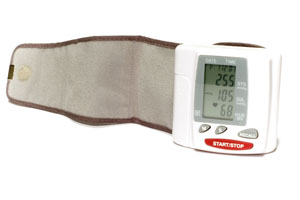Techniques for Improving Circulation
 A healthy circulatory system is crucial to good health. To be at its best, your body needs to be able to keep blood pumping from the heart and lungs through the arteries to your organs and extremities, and then keep pumping it back to the lungs for re-oxygenation. Anything that interferes with the proper circulation of blood puts your body’s health at risk for lots of reasons.
A healthy circulatory system is crucial to good health. To be at its best, your body needs to be able to keep blood pumping from the heart and lungs through the arteries to your organs and extremities, and then keep pumping it back to the lungs for re-oxygenation. Anything that interferes with the proper circulation of blood puts your body’s health at risk for lots of reasons.
“Poor circulation” can mean many things. Common symptoms include having consistently cold fingers and toes, experiencing tingling in your feet and hands, feelings of numbness, tiredness and a general lack of energy, and chronically dry skin. More serious symptoms of poor circulation can include headaches, hair loss, dizzy spells, varicose veins, muscle cramps, feeling short of breath, memory lapses (due to impaired blood flow to the brain), bluish-tinted skin, and slow healing times for wounds.
What causes poor circulation?
One of the most common causes is inactivity and lack of exercise. To keep the blood moving, you need to keep your body in motion. And do it often. Poor diet and carrying excess weight can lead to poor circulation, as can diabetes and many other chronic diseases. Medically, if you have been diagnosed as hypertensive (having high blood pressure), this is almost always an indicator of poor circulation. The “high pressure” is caused by your heart having to pump harder to cause the blood to keep flowing, often because of blood vessels that have become constricted because of stress, disease, or the buildup of plaque.
How can poor circulation be treated?
Serious circulatory problems can be treated with medication. But for most people anxious to improve their circulation and thus their overall health, a few lifestyle changes can do wonders:
- Get more exercise. Walk rather than ride. Take the stairs rather than the elevator. Go for walks after lunch and go to the gym after work. Your body functions best with a minimum of 30 minutes exercise per day.
- Stretch more. Not just before exercising, but at your desk at work. Stretching helps to relieve stress, and stress is one of the things that can constrict your blood vessels.
- Get massages. Massage improves circulation by stimulating the soft tissues of your body and encouraging blood flow.
- Put your feet up. After you exercise, elevating your legs can really help you not only to relax, but increase your circulation. It also reduces your risk of developing varicose veins.
- Eat healthier foods. Try to eat more fruits, vegetables, whole grains, healthy fats (from fish, olive oil, and nuts), and lean meats. Try to avoid processed foods.
- Drink more water, and less caffeine. When you’re thirsty, drink water instead of coffee or black tea or soft drinks. Try to cut down on or avoid alcohol, because it definitely impedes circulation.
- Don’t smoke, or quit smoking if you do. Nicotine and the pulmonary perils of smoking are among the most common causes of poor circulation.
- De–stress, however you can. Stress has an extremely negative effect on your circulation. So try to find healthy outlets for the stresses you encounter at work and in other areas of your life, to release the stress rather than have it build up and become toxic.
- Consider herbs and supplements that can help. Ginger, hawthorn berry, cayenne, motherwort, garlic, ginkgo biloba and vitamins C and E all can help to improve your circulation.
If any of the symptoms become chronic, see your doctor or chiropractor. Don’t try to “tough it out” and live with the discomfort of consistent symptoms of poor circulation. Some of the causes can be very serious indeed, so see an expert to make sure.
